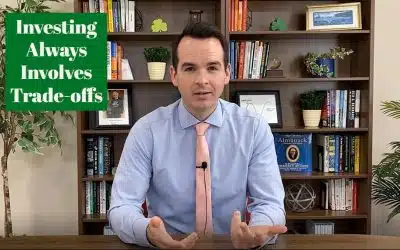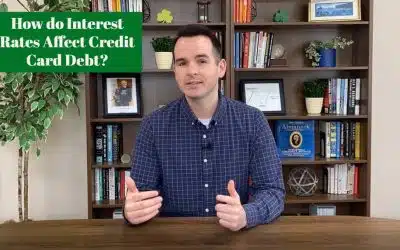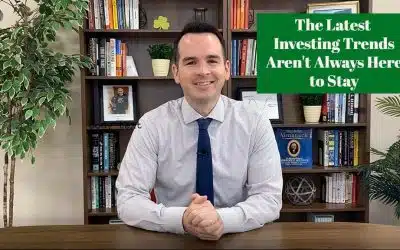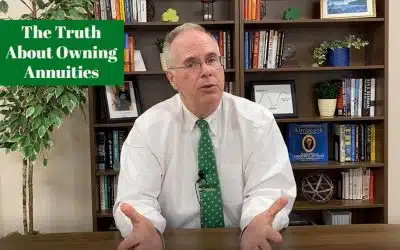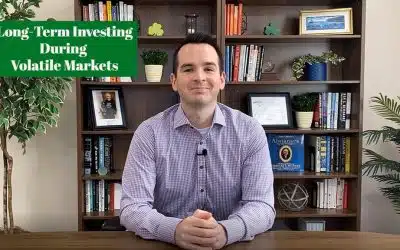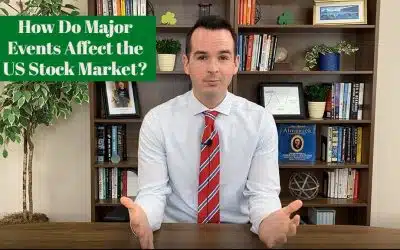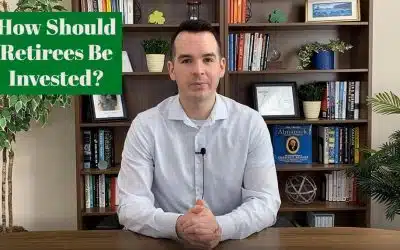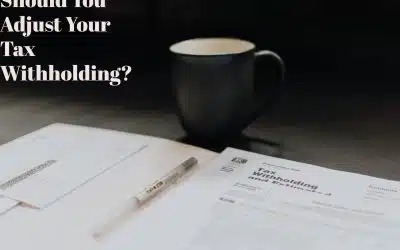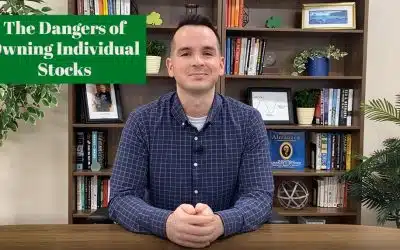Looking for tips related to financial planning and investment management?
Investing Always Involves Trade-offs
Investing involves trade-offs. You have to risk something in order for the potential gain. There is always something at stake. In this week's video, Casey breakdowns the trade-offs being made when investing in stocks, bonds and cash. You can't just stick your money...
What’s Going on with Bonds?
Stocks and bonds both had a volatile first quarter. This has many investors considering a peculiar question: Is there more risk in the stock or bond side of my balanced portfolio? Based upon what's occurred so far in 2022, this is a reasonable thing to wonder. Both...
How Do Interest Rates Affect Credit Card Debt?
Credit card users can expect to see increasing rates sooner rather than later. As the Federal Reserve increases their benchmark interest rate, banks are wasting no time in passing that through to consumers. In this week's video, Casey offers guidance on how best to...
How to Balance Saving Money and Investing for the Future?
Saving money is the core pillar of personal finance. It teaches you how to live below your means. It also demonstrates the importance of planning for the future. But, how much should you save? How much should you invest? And what type of accounts should you be doing...
The Latest Investing Trends Aren’t Always Here to Stay
There will always be new "can't miss" investing trends trying to attract our attention (and dollars). In this week's video, Casey discusses research done by Morningstar that examines how the "latest and greatest niche funds" perform relative to the broader market as a...
Should We Be Worried About the Yield Curve?
If you've been seeing headlines about the yield curve lately and don't know what that is or what it means, look no further than this week's podcast. The guys discuss rising interest rates, what's been going on in the bond market, and why everyone in the financial...
What Does it Mean When the Fed Raises Interest Rates?
The Federal Reserve came out last week and raised their "main" interest rate, the federal funds rate by 25 basis points. It was set to 0.0% - 0.25%. And now it is 0.25% - 0.50%. But is that a good thing? A bad thing? Or somewhere in-between? And how does it affect...
The Truth About Owning Annuities
When the stock market is volatile, sales of annuities tend to skyrocket! Folks are tempted by the downside protection, but there are usually misleading strings attached. In this week's video, Tom breaks down what those strings are and why the annuity pitch sounds so...
The Best Way to Work With an Accountant
March and April are when you hear from your accountant the most. Whether that is them asking for your tax documents, asking clarifying questions regarding those documents, or sending you your return, your accountant is more top of mind in the beginning of the year...
Why Financial Planning Gives You Conviction
Going through the financial planning process should give you conviction in your investment plan. During difficult times conviction is needed to not panic sell. Conviction comes from belief. Belief comes from understanding. And understanding comes from education,...
8 Tips to Stay Invested During Down Markets
When markets are volatile, it can be hard to find reasons to stay invested. In this week's video, we offer 8 reasons to stay invested when the markets are down. These are meant to keep you thinking long-term and to help you stick to your investing process when doubt...
Long-Term Investing During Volatile Markets
It can be tempting to change the plan during volatile markets. But that's the exact time you SHOULDN'T be making wholesale changes to your investments. In this weeks video, Casey discusses how long-term investors should be handling the stock market volatility caused...
How to Determine What You Actually Pay in Taxes
Do you know how much you paid in taxes in 2021? Not how much you owe or how much of a refund you're getting. That's different. What amount of tax did you pay on each dollar that you earned? It surprises us every year when folks don't know the answer to this question....
Should You Use Retirement Assets to Pay Off Your Mortgage?
Being able to pay off your mortgage is the dream for every homeowner. But is it a good idea for retirees to use their retirement assets to get rid of mortgage debt? In this week's podcast, Brendan and Casey breakdown the different aspects of this decision. They weigh...
How do Major Events Affect the US Stock Market?
In this week's video, we take a look at how some of the biggest geopolitical events in recent history have impacted the US stock market. We know there is a lot of uncertainty right now regarding the situation in Eastern Europe, but we can't let emotions dictate our...
The 3 Principles of Retirement Planning
The decision to retire, will, for many folks, be the hardest financial decision they ever make. Sticking the landing in retirement is like landing a plane on a one lane bridge during a storm. Retirement planning may sound simple on the surface, you just save as much...
How Should Retirees Be Invested?
The common investing belief for retirees is that they should invest more conservatively as they get older. In this week's video, Casey discusses asset allocation, rebalancing and how retirees might want to think about their different asset "buckets". Show Notes Older...
Should You Adjust Your Tax Withholding?
Adjusting your tax withholding could make a big difference in your financial plan. The beginning of a new year is a great time to assess your tax withholding and make any changes necessary. Your 2021 tax situation is most likely all set. (I say most likely because the...
The Dangers of Owning Individual Stocks
We've seen several extremely volatile moves in big tech stocks this week after they've released their earnings reports. Owning individual stocks is risky. In this week's video, Casey explains what's been going on while highlighting the best way to own individual...
Does Paying Down Debt Count as Saving Money?
We talked on a recent podcast about whether or not paying down debt counts as saving money. They are both equally important financial habits to form. But the resounding answer was no it does not. If you're reading this blog post, you likely have debt. (Or at least...

